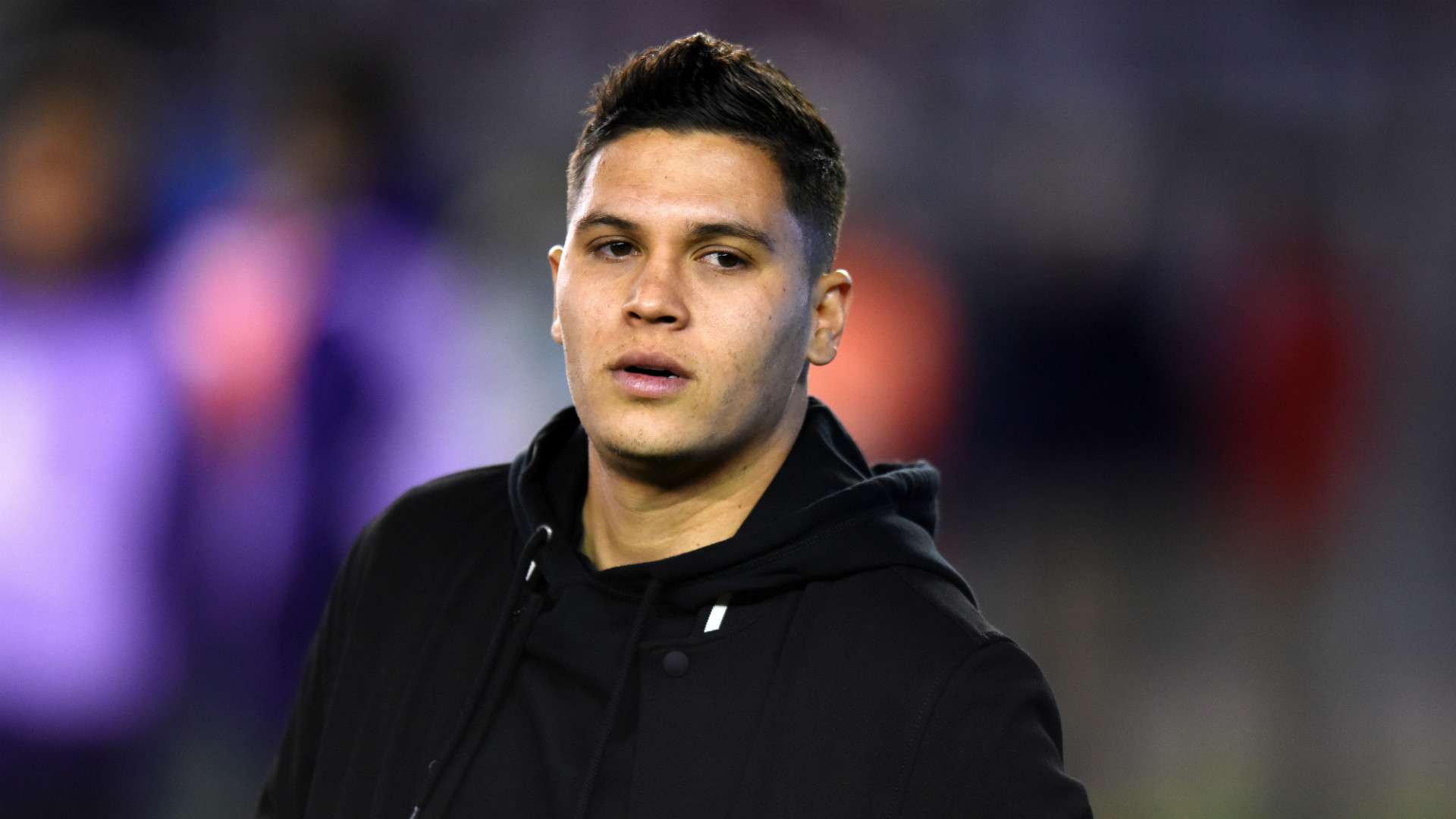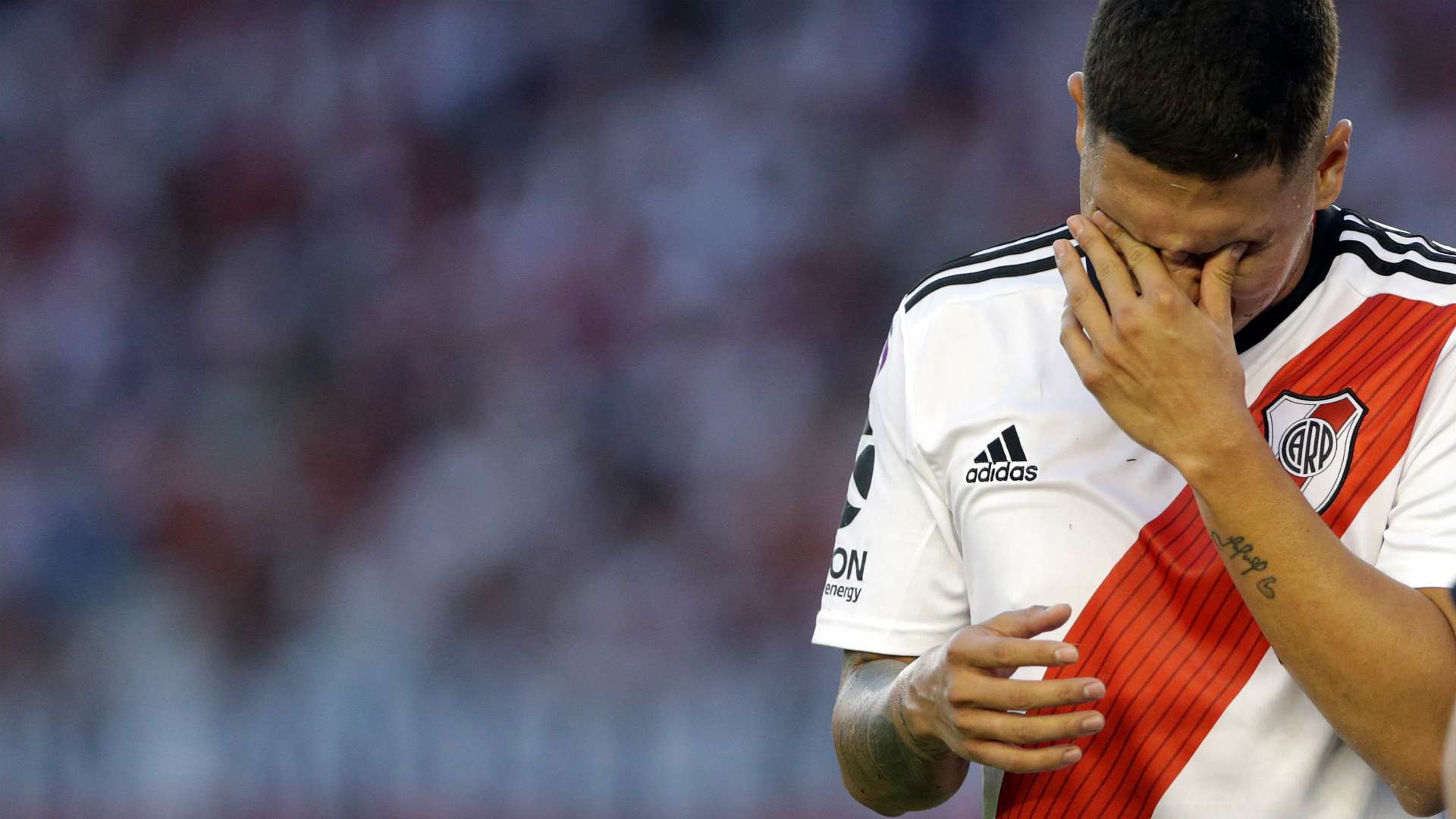At his best, Juan Fernando Quintero is one of those select footballers who are simply a joy to watch.
The River Plate playmaker possesses infinite tricks to break through an unsuspecting defence, as well as a left foot that is a danger to goalkeepers from almost anywhere in the opposition half. Perhaps what most delights onlookers is the apparent insolence and carefree ease of his game, as when the stocky little No.10 dances around markers and goes for goal he does so with a smile etched permanently on his face.
But Quintero's infectious joie de vivre hides a horrifying family tragedy, all the more painful for the long years in which it has remained unsolved. The Colombian's father has been missing since he was two years old, and the family's wounds were ripped open again by certain events in December.
Like his son Juanfer, Jaime Enrique Quintero Cano was a promising footballer. As a teenager he spent time on the books of both Medellin's Atletico Nacional and Deportivo Itagui, playing like his son as an elegant No.10. Forced out of the game by the need to take care of his young family, however, and with another child on the way, Jaime undertook military service in the Colombian Army at the age of 23 in the hope of boosting his job prospects.
In 1995, the South American nation battled two implacable adversaries. On one side, the vicious conflict with guerrilla groups such as the FARC and ELN, which by that date had already been active for almost 50 years. On the other side, heavily armed, immensely rich drug trafficking gangs fighting for position and prestige since the death of Medellin Cartel kingpin Pablo Escobar two years previously. It was a combustible, deadly mix, and Colombia's response was to become in essence a militarised state, with hundreds of thousands of young soldiers conscripted to serve in the third-largest army in the Americas behind the United States and Brazil.
Jaime Quintero reported for duty in Medellin on March 1, 1995. After passing a physical he was immediately assigned to the 31st Battalion in Uraba, a border region in Colombia that straddles the jungle isthmus of the Darien Gap. Containing miles of impenetrable undergrowth, the Gap was and still is a hotspot both for guerrilla activity and traffickers moving narcotics north towards neighbouring Panama - “the most dangerous piece of jungle in the world”, in the words of US journalist Jason Motlagh.
“He called us the next day and said that he had got Uraba in the Voltigeros battalion; at that time there were battles between the guerrillas and the Army,” Jaime's sister Silvia told Agencia Andalou of the siblings' final conversation. “He said they would be taken there in a plane. We were waiting for him to call again, because he always got in touch with us, wherever he was.
“As he was also a footballer, he would always call us from wherever he found himself.”
 Getty Images
Getty Images
After several days of silence, the Quintero family began to enquire over Jaime's whereabouts and heard from a neighbour whose army battalion was attached to the same brigade in Uraba that there was no sign of the young soldier. The same neighbour went to battalion captain Eduardo Zapateiro, who informed him that he had never heard of Quintero and did not have him on his list.
The rest of the soldiers, however, told a different story. According to them, Jaime had responded angrily to Zapateiro's bullying manner and the pair had an altercation, which led to the former being expelled from the battalion. “Ah yes, I remember him,” the captain corrected himself when confronted for a second time. “I took that young man to the airport myself and sent him to Medellin.”
But Quintero never arrived in Medellin. According to Edison de Armas Aviles, another recruit, he was ordered to board a bus by Zapateiro with 30,000 Colombian pesos (US$6) in his pocket in order to return cross-country to the city, a journey that would take him through extremely dangerous jungle controlled by guerrillas and paramilitaries.
He was never heard from again, and to this day stands as one of the 83,000 individuals alleged to have been forcefully 'disappeared' by the military, paramilitary groups and guerrilla fighters, according to the National Centre for Historic Memory (CNMH). In a macabre twist, Aviles also belongs to that list, having gone missing himself following Jaime's disappearance.
Until December 2019 the case stood as just one more chapter among the horrors perpetrated during Colombia's half-century-long conflict, which has left an estimated 220,000 dead. Quintero, of course, has little if any memory of his father, and it has been Jaime's sister Silvia and brother Carlos who have led the 25-year struggle for justice and truth. But the River star was forced to speak out when Zapateiro, now a general, was named Commander-in-Chief of the Colombian Army by President Ivan Duque.
“I have the right as a son to know what happened to my father and that is what I want to know, because I have suffered and seen my family suffer mental and sociological problems and the absence of my father,” the playmaker stated on Twitter after learning of Zapateiro's promotion.
“There is an empty space there and I feel it every day, I just want to know what happened.”
In his response, Zapateiro affirmed that he “sympathised” with the family of Quintero, and that his “doors were always open” for a player he professed to respect a great deal. The pair did meet at the start of January, as revealed by none other than President Duque; but the encounter failed to yield information as to the fate of the missing Jaime, nor did it placate the rest of the Quintero family who claim the then-captain was never fully investigated for his part in this alleged disappearance.
As with so many in Colombia, Juanfer and his loved ones may never receive the answers they crave over this dark, bloody period in the country's history.
